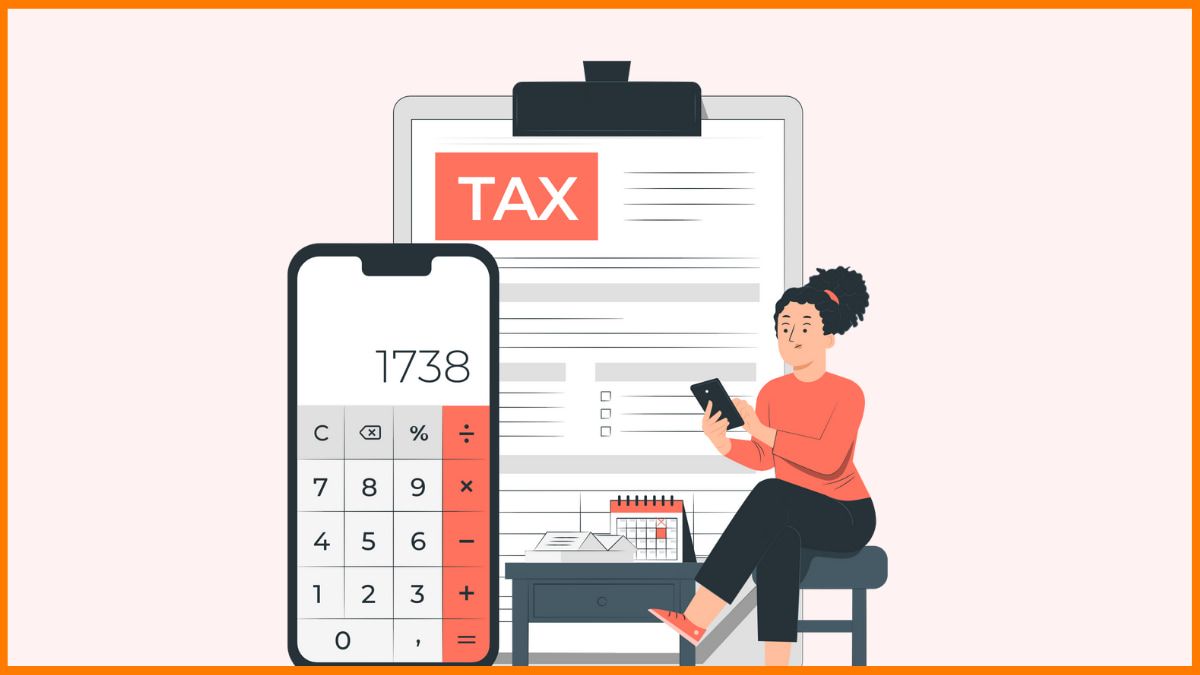The power of a Human Mind is astonishing. Just by looking at the past few inventions, one can understand, what the human mind is capable of. In the present age, everything is possible with just a simple click, from shopping to dating. It wouldn’t be wrong to say that we are carrying the whole world in our pockets, thanks to technological advancement. One of the biggest contributors to carrying the world in our pockets is Apple Inc.
The world’s biggest technology company that deals with electronics and computer software first started its journey in 1976. It was founded by Steve Jobs, Steve Wozniak, and Ronald Wayne.
Till 2011 Steve Jobs was the CEO of the technology giant. Later in that year, after the death of Steve Jobs, Tim Cook took the charge of Apple. These are just basic facts that almost everyone knows about Apple. Let’s come to the point that makes this article interesting.
Regardless of how much money we make, taxes are very painful for all of us. But on the one hand, people like you and me sincerely pay our taxes. On the other side, there are companies like Apple, and Google that evaded their taxes by billions of dollars.
The question is what is this genius tax-evasion strategy and how do they escape the strict laws of governments? Let’s try to understand by using Apple as a case study.
Bending Rules
What Is Tax Haven (Heaven)?
The Tactics Apple Uses For Tax Avoidance
Challenges Faced By Apple for Avoiding Tax
Present Condition of Apple and Taxes
Bending Rules
With great powers, comes great responsibility, and so do pay taxes to the government of the country they live in. Apple being the biggest tech company is not an exception. It is bound to pay a large sum of amount to the Government in the form of taxes.
Just like other businesses, Apple is also not that fond of paying billions of bucks in taxes but has no choice but to be responsible to the country. Somehow, Apple used a tactic to avoid paying billions to the Government. Well, the secret is, not so secret. Apple transfers most of its profit to tax haven countries and thus takes advantage of loopholes, the US Government has in its tax-paying system.
“Play by the rules, but be ferocious”– Phil Knight
As part of its tax avoidance strategy, Apple uses its ‘subsidiaries’ in Tax havens. Now, to understand this more deeply, first let’s try with the term, Tax Haven.

What is Tax Haven (Heaven)?
True to its name, the term ‘Tax Haven’ is used for all those countries that offer, foreign investors the to pay minimal and sometimes even no taxes for their businesses. This is basically a good scheme for the investors to avoid paying taxes to the actual country the individual or business belongs to. Another attractive part of this ‘heaven’ is that they occasionally offer financial secrecy to the investors.
Some of the top Tax havens are:
- Ireland
- Netherlands
- Switzerland
- Panama
- Bermuda
- The Cayman Islands
- Luxembourg
The Tactics Apple Uses For Tax Avoidance
Every time Apple has stated that it has always played by the rules and has paid taxes to the Government as per the laws. In fact, it considers itself the largest taxpayer in the world. This is somewhat true, in 2017, Apple stated that it had paid over $35 billion dollars in the last three years. However, that amount wasn’t able to make even a small dent in the revenue of Cook’s led multinational company. How?
Well, the strategy is to transfer their profit, obtain domestically to Tax Haven countries. Apple uses Ireland and Luxembourg as its ‘Haven’ to get away from paying the lump sum.
Agreement Between Ireland and Apple
Apple has been operating in Cork, Ireland since 1980 for its overseas operations, and they also set up a manufacturing plant in Holyhill, above Cork.
In 1990, when Apple’s market share was crumpling worldwide, they wanted to save money. Apple’s CEO John Sculley signed a deal with the Irish government. In 1990, Apple’s team met with the Irish government and drafted an arrangement for how much tax it paid in the country.
Since then, Apple has been the largest employer in Cork, Ireland, where they had an upper hand. Apple disclosed to the Irish government that the firm is examining its worldwide operations and Apple desires to establish a profit margin on its Irish operations.
Based on the financial data from 1989, Apple showed $751 million dollars in revenue and $270m in net profit per year. Apple also showed that these profits were made mainly through its technology, marketing, and manufacturing.
They told the Irish government that they only manufacture in Ireland. Therefore, they should not be taxed on the other two elements of business: marketing and technology. Apple has been in Ireland for 10 years and if they do not strike a deal, they will go somewhere else.

The Irish government agreed to the deal offered by Apple in 1991 to tax only certain elements of the business. This made Apple’s taxes suddenly drop to 12.5%, compared to the US (21%). All of Apple’s revenue generated from India, Europe, and the Middle East is taxed in Ireland.
But an investigation by the EU revealed that Apple has paid only 1% or 0.5% taxes instead of 12.5%. They also accused the Irish government of collusion with Apple, because Ireland does not want Apple the largest employer in the country to leave Ireland.
Apple’s Strategy of Creating Two Subsidiaries

Apple created two subsidiaries in Ireland, “Apple sales International“ to hold rights of Apple intellectual property to sell and under a “cost-sharing agreement” with Apple Inc. to manufacture outside of South and North America named “Apple Operations Europe“. The Head office of these companies is on paper only and they are controlled by board members mainly based in the US.
Now, these two companies yearly only pay for research and development to Apple Inc. in America. By doing this Apple sales International kept all the revenues and profits generated from India, Europe, and the Middle East.
In 2011, According to US Senate, Apple sales International recorded a profit of $22 billion. But under the agreement with the Irish government only $50 million were taxed and it kept decreasing until 2014.
Before 2017, the US tax system doesn’t put taxes on the profit obtained from the multinational company’s foreign subsidiaries unless they are transferred to the parent company as dividends (changed in 2017). Which is, while compared with the foreign country taxes, is way much higher.
There is a term called ‘Deferred Tax’, which means the income tax that a company will pay in the near future instead of paying immediately, which might be a big shock to the bank balance.
Apple has taken that advantage by transferring over 70% of its domestically obtained profit to the tax haven, thus putting those profits in the deferred tax category of the company.
As per a report from 2017, Apple was avoiding paying almost $78 billion dollars of taxes at that. In Ireland, Apple had three subsidiaries, which played a significant role in the game of Tax Avoidance.


Challenges Faced By Apple for Avoiding Tax
Unfortunately, this game has not been a smooth ride for the technology giant. It has to face some consequences for its tax avoidance strategy.
In 2013 an investigation revealed that two of the subsidiaries of Apple in Ireland are formed in a way that has helped them in avoiding paying taxes to both the country, U.S. and Ireland.
- On 29 August 2016 European Commission declared that Apple has used Ireland, and had received illegal tax benefits from the country.
- The European Commission instructs Apple to pay almost $15 billion dollars along with interest to Ireland for not confiding with the rules and not paying proper taxes.
- The Irish Government took the side of the tech giant and stated that no tax law has been violated.
- In the month of November of the same year, Tim Cook appealed against the instruction.
- In 2018, Apple paid around €14.3 billion in back taxes and interest that was due to Ireland. The money was held in an Escrow fund.
Present Condition of Apple and Taxes
After a long battle with the European Commission, in July 2020, the European General Court gave a decision in favor of Apple and the Irish Government.
This automatically became good news for the Technology giant as it does not have to pay a huge amount. At present, the European Commission has decided to appeal again, and this time in front of the highest court, the Court of Justice of the European Union (CJEU).
Conclusion
The bigger the business, the bigger will be the risk. Apple Inc. is not an exception here. As stated before, the human mind is amazing. Companies like Apple will always find a way to deal with complicated matters in legal and sharp ways.
FAQ
What is the revenue of Apple?
As of 2022, Apple has reported its revenue in the USA was 99.8 billion U.S. dollars. While global revenue reported by Apple was 365.82 billion U.S. dollars in 2022.
Who Is The CEO Of Apple?
Since August 2011, Tim Cook is the CEO of Apple.
Which is the best Tax Haven?
Cayman Island is considered the best country as Tax Haven.
How Much Does Apple Saved On Taxes?
Apple saved around $40 billion in Taxes.



















